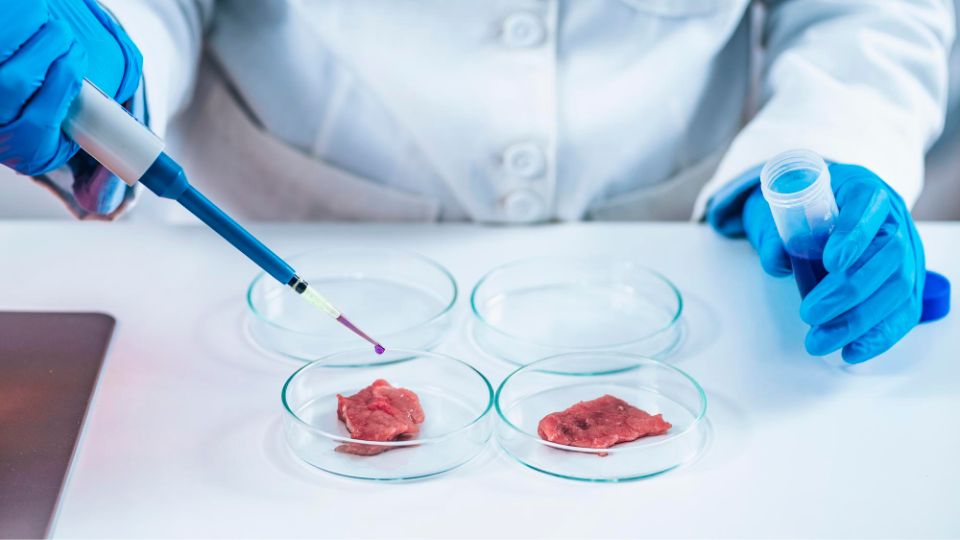Alabama is now the second state in the United States to reject cultivated meat, which is a type of alternative protein made from animal cells.
The Alabama bill, which was proposed by Sen. Jack Williams, who is the vice chair of the Senate Agriculture, Conservation, and Forestry Committee, and signed into law on May 7 by Gov. Kay Ivy, makes it illegal to produce, sell, or distribute food products that are made from cultured animal cells.
A week after Florida Governor Ron DeSantis declared the state the first in the nation to prohibit the sale of so-called lab-grown meat, the new legislation officially takes effect. “We stand with agriculture, we stand with the cattle ranchers, and we stand with our farmers, because we understand it’s important for the backbone of the state,” DeSantis said during a press conference on May 1st, which was the beginning of National Beef Month.
“Today, Florida is fighting back against the global elite’s plan to force the world to eat meat grown in a petri dish or bugs to achieve their authoritarian goals,” the DeSantis administration stated.
Also Read: New York’s Oldest Business is Right Here in the Hudson Valley
According to the Florida Department of Agriculture and Consumer Services, the annual revenue generated by the sale of beef cattle and breeding stock in the state is more than $900 million.
Because it is a significant source to methane emissions on a worldwide scale, the production of beef has become a central topic of concern about climate change. An individual cow is responsible for the production of between 154 and 264 pounds of methane gas in a single year, as stated by the Environmental Protection Agency. If you multiply that number by the 1.5 billion beef cattle that are raised all over the world, you would arrive at a total of at least 231 billion pounds of methane that is released into the atmosphere every year.
Experts note that cell-based protein is different from traditional livestock farming because it doesn’t need land, water, and crops. This is good for the environment, especially as the demand for meat increases worldwide. The Good Food Institute reports that global funding for cultivated meat and seafood companies, which number over 100, amounted to $225.9 million in 2023. Since 2013, these companies have received a total of over $3 billion in funding.
Also Read: New York’s Cannabis Programme Undergoes Significant Improvements
“Banning cultivated meat is a risky decision that disregards the advice of food safety experts and scientific evidence. It limits consumer options and slows down innovation in America,” stated Sean Edgett, the chief legal officer of Upside Foods, in a statement to CBS MoneyWatch. “Large meat companies have put money into cultivated meat to make their supply chains stronger and keep up with the increasing worldwide demand for meat.” We should welcome and support new ideas and advancements in order to improve the future of food.
Upside is one of only two companies that have been approved by the USDA to sell their chicken products in the U.S. They have received investments from food companies Cargill and Tyson Foods, as well as billionaires Richard Branson and Bill Gates.
Upside began a change in response to the bans in Alabama and Florida.Sign an online petition asking consumers to request politicians to stop regulating what they eat.


Leave a Reply